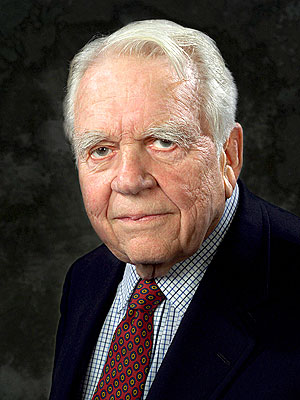has published their Q&A interview with you on the state of the US real estate sector. As background, iProperty.com is Malaysia's number one property and real estate website.
New York Appeal
By: iProperty.com
Described by the New York Observer as “one of the few real estate attorneys to successfully grow and sustain what could fairly be described as a global boutique firm”, Edward A. Mermelstein, a US lawyer based in New York, talks to Jan Yong on investing in the US, as well as a host of other issues.
The Ukrainian-born top lawyer is also a broker and developer, and is known for closing hundreds of real estate deals, many of them multi-million dollars, for Russian and Central Asian clients in
New York city.
iProperty.com: Why would foreign investors invest in US property now?
Edward Mermelstein (EM): Entry into the US market is very much at a low point now – the post-recession pricing is very much accessible for international buyers. The US dollar is fairly weak compared to foreign currency these days. Property prices are down by 50% in certain locations. Furthermore, the US market is consistently politically and economically stable for long-term investments.
US real estate laws apply very much the same for foreigners as US citizens or residents other than the required visa for the foreigner to enter the US to view the property.
In fact, you don’t even have to enter the US. You can do everything by power of attorney although I won’t recommend anyone doing that! It would be difficult for me to represent someone who wants to do that. We sometimes do that but only after the client has actually seen similar properties in the same building or area.
There is no minimum purchase price required or landed property restrictions. There is no concern for the US of foreigners buying up American land and property because the number of foreign ownership of property is currently very small. Maybe in New York, the figure might exceed 10% but there is certainly no fear of foreigners buying up the country!
Apart from each state’s legislation, the real estate laws there are also governed by city and county laws, for example, each county can make decisions on the type of constructions, etc. In the US, a foreigner can’t simply buy real estate to get a green card. They need to go through the EB-5 programme where they have to invest at least US$500,000 and create at least 10 jobs.
iP: What about some talk that the US dollar might collapse one day?
EM: If that ever happens, we have more to worry about. It will be the equivalent of a global nuclear war. The likelihood of this taking place is very remote simply because it would send shockwaves globally that I don’t think anyone can recover from because the world economy is so dependent on the US economy. It’s a scary thought. The dominos falling after that is just too large.
iP: Which US locations are popular with foreign property investors?
EM: It varies with the foreigner. The west coast’s proximity to Asia in terms of travel time makes it popular. In the east coast, New York, Miami and Washington DC are popular with the Chinese and Koreans.
New York (NY), especially Manhattan is very unique compared to the rest of the country. Manhattan has always been a destination for foreign investors because it is one of the financial capitals of the world. It is multicultural and every language is represented there. NY is really a melting pot in a true sense. There are more immigrants and diversity in NY than any other part of the world. Financially, every major bank in the world is represented there. It’s been the strongest real estate market in the US for the last 70 -80 years and the recession has not affected it.
Speaking of recession, generally, we are no longer in recession because of several quarters of positive growth. Real estate continues in many areas to be in recessionary state but cities such as NY and San Francisco are anomalies and don’t reflect what’s happening in the rest of country. Manhattan especially is back to pre-recession levels and is expected to be so for the next 3 – 5 years. In certain parts of Manhattan, you can expect to see appreciation of 15 – 20% per year particularly in the office sector.
iP: Who are the largest groups of foreign property investors in the US now?
EM: It shifts – several years ago, the Middle East was one of the larger presence. The largest are the Canadians followed by the Europeans. Now Chinese from China, both institutional and individual investors are coming in. They have a lot of liquidity and are very much taking advantage of the weak US currency. We will see the largest growth from them especially in the residential sector.
iP: Is rental income from a US property taxable to a foreign owner resident outside of the US?
EM: Yes, it’s taxed at the same level as a US citizen. There are however reciprocal tax treaties depending on which country, that allows tax credits. If you have already paid the tax in the US, you are unlikely to have to pay your local country’s tax. But again, it’s on a case to case basis. If you spend a certain amount of time in the US, you can become a tax resident which makes you subject to tax laws as if you are a citizen.
iP: How easy is it for a foreigner to obtain a US bank loan to purchase property in view of the tightening of mortgage loans there?
EM: Generally, it’s difficult to get a mortgage loan since the last few years due to the subprime crisis and the recession. It’s getting easier now as the secondary market recovers and as CMBS (commercial mortgage backed security) and RMBS (residential mortgage backed security) become active again, it allows the recovery in mortgage market for individuals.
Foreigners can obtain mortgages but it would be difficult. If they can show proof of income and credit history, it makes the mortgage process much easier but it’s a hurdle that’s hard to overcome. One of the reasons local sellers prefer foreigners is because the latter buy cash. Once purchased with cash, it’s easier to take money out of it.
In generally, US banks give 50% loan to value to a foreign buyer. But it’s better to purchase with cash first, then use the property as collateral for a loan.
iP: How is the subprime mortgage crisis playing out in the US now?
EM: It’s definitely recovering but foreclosures are still a problem in many states. Having said that, many locations are not affected by the subprime, for example, NY is very much an anomaly. Subprime was never a problem there.
iP: What do you think of the Malaysian “My First Home Scheme” where first home buyers get to buy a relatively cheap house with 100% loan?
EM: It’s a scenario that creates an artificial pricing scheme that could lead to overbuilding. When a buyer has nothing to lose, there is much greater risk of a collapse.
iP: What do you think of tax liens on properties? Is it a good way to buy a US property from a foreign investor’s point of view? (Note: tax lien is a lien imposed by law upon a property to secure the payment of taxes.)
EM: It’s a gimmick in the same way real estate gurus prey on foreclosures or short sales where you buy property below mortgage amount which forces the bank to take less than what they are owed. So, tax liens should be left to experts that work within that area. It’s a very narrow investment vehicle that I would stay away from if you don’t have a lot of experience. A lot of people have invested in tax liens without really understanding what can happen.
Usually tax liens are against property that most people won’t buy or these are abandoned properties so the likelihood of ROI (return of investment) against these properties becomes very small.
If someone stops paying their taxes, it’s usually in impoverished, dying cities. You see quite a bit of that in areas that are significantly overbuilt, and at abandoned projects. The likelihood of anyone investing there becomes very remote, therefore ROI is very remote.
iP: From recent reports, Latvia is the No: 2 hottest property market in the world. Apparently, this is due to its government policy that provides EU residency to those who invest US$96,112 or more in a property there. What is your view on this?
EM: I am not a big fan of gimmicks but the fact that Latvia is in close proximity to Russia and Ukraine where there are a lot of rich people, has created a niche in the short term. I am not sure how long it will continue. With every gimmick comes some sort of barrier shortly after.
iP: From your short trip in Malaysia, what is your impression in terms of its property market?
EM: From my experience, when you look at a market, you can tell by just driving around. If you see a lot of active constructions, it means it has a functioning mortgage market; there is liquidity when banks are funding construction. There are quite a bit of active construction sites here which give the impression of a strong market especially knowing that globally, many real estate markets are suffering. However, until you do in-depth market research, this is the surface impression. Knowing that commodity prices are very strong, it’s easy to hold a strong opinion that this market will continue to do well unless something happens to the price of oil.
iP: Any tips on property investment overseas for Malaysians?
EM: You have to be careful when going through third parties when purchasing property overseas. Be careful when you can’t do due diligence on the management or investment company, or the marketing agent. There are public listed companies that you can do due diligence on. So the best way to invest overseas, is either direct investment or going through investment vehicles such as REITs which are publicly traded.
iP: Why do you have an office in Moscow and will you be opening another office overseas?
EM: We have a presence in Russia simply because a large concentration of money in Moscow tends to invest in real estate in the US. We hope our next office will be in China and maybe KL!

















